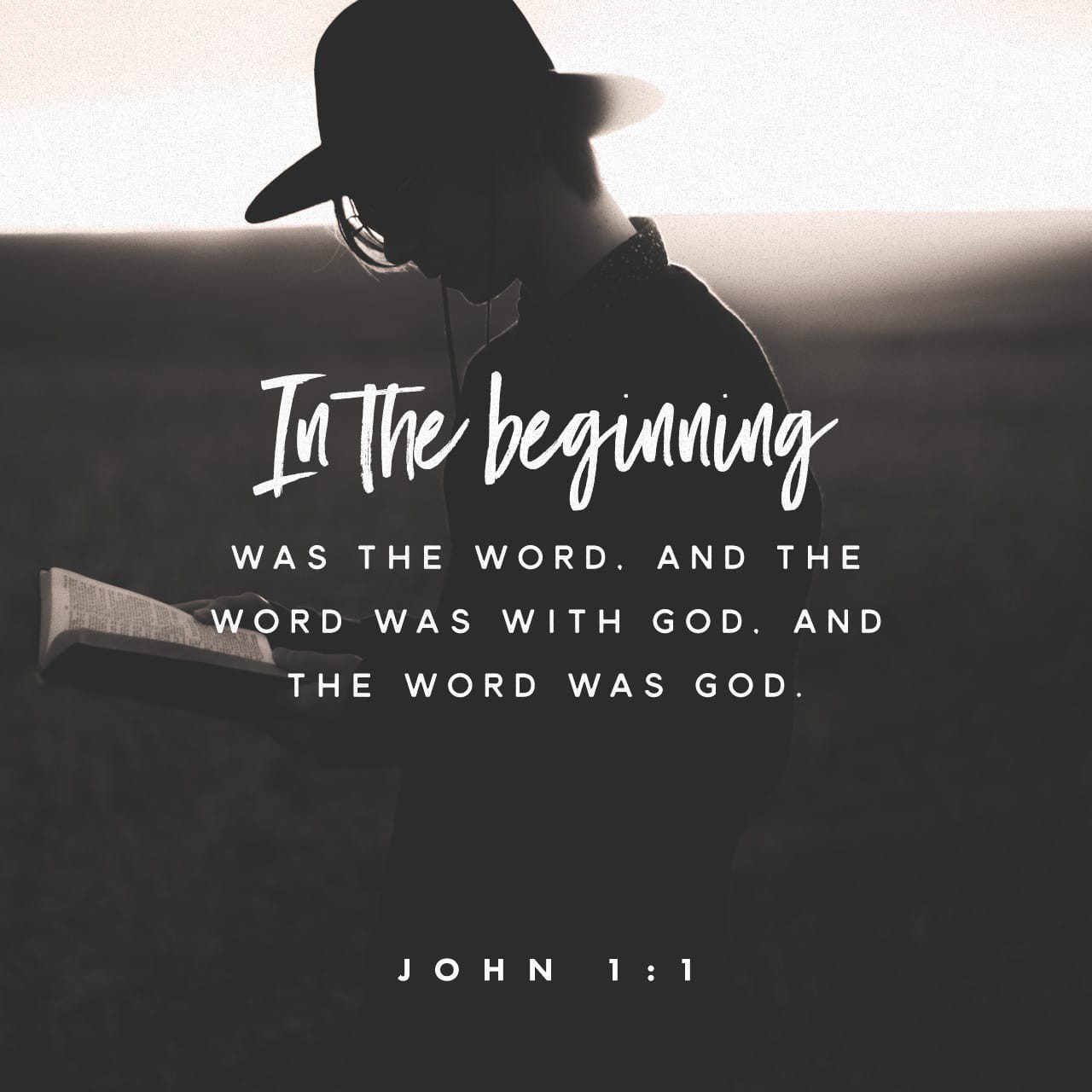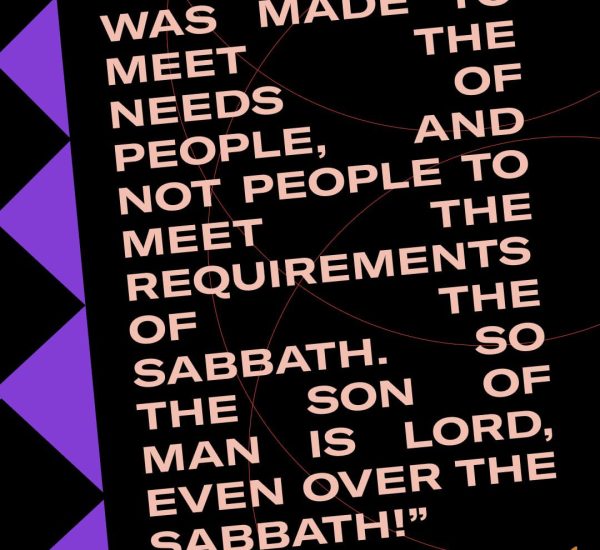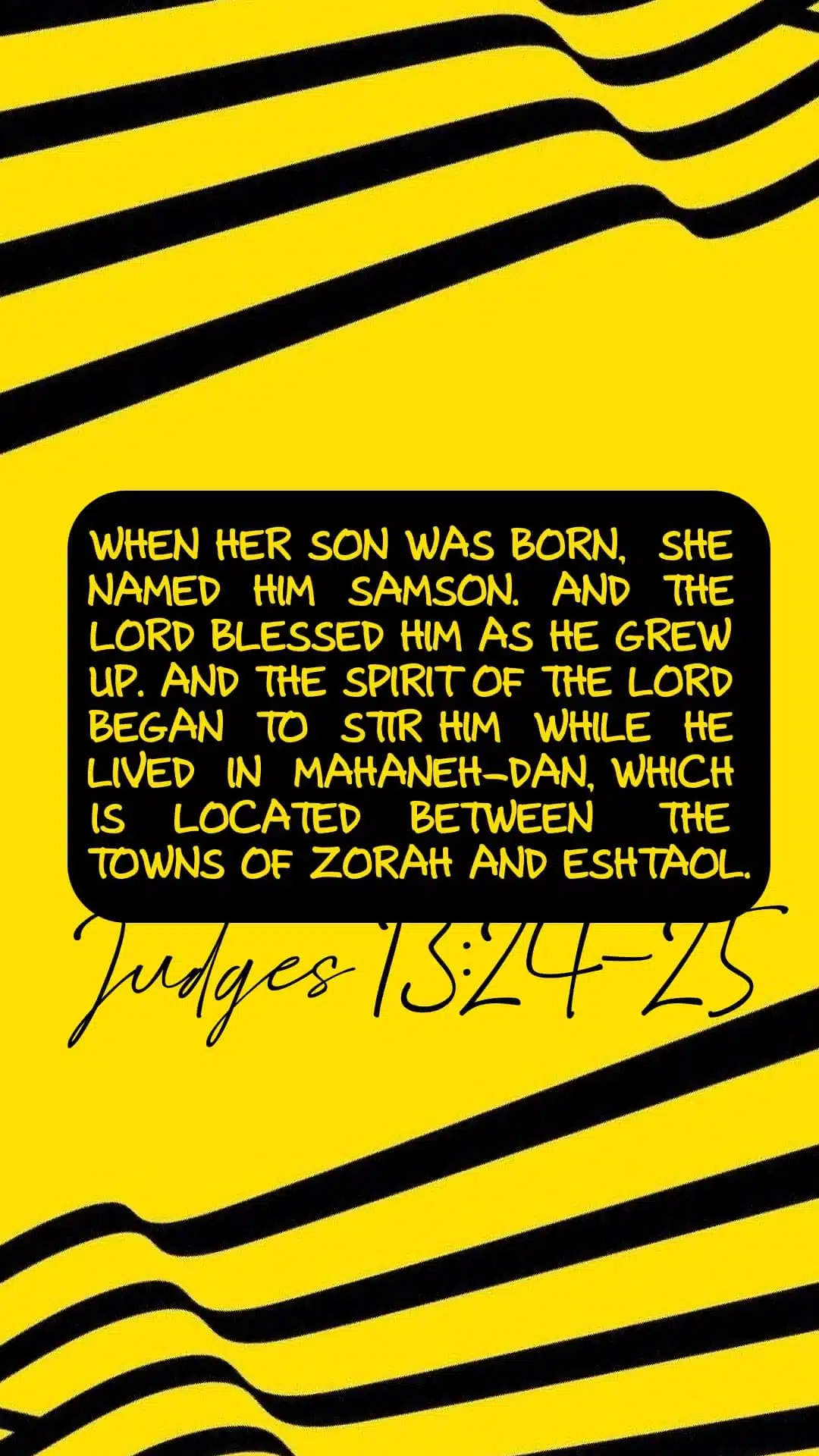SATURDAY, AUGUST 2, 2025
Unveiling the Eternal Christ
BIBLICAL FOUNDATION:
- TEXT: JOHN 1:1-18 (NIV)1: In the beginning was the Word, and the Word was with God, and the Word was God.2: He was with God in the beginning.3: Through him all things were made; without him nothing was made that has been made.4: In him was life, and that life was the light of all mankind.5: The light shines in the darkness, and the darkness has not overcome it.6: There was a man sent from God whose name was John.
7: He came as a witness to testify concerning that light, so that through him all might believe.
8: He himself was not the light; he came only as a witness to the light.
9: The true light that gives light to everyone was coming into the world.
10: He was in the world, and though the world was made through him, the world did not recognize him.
11: He came to that which was his own, but his own did not receive him.
12: Yet to all who did receive him, to those who believed in his name, he gave the right to become children of God—
13: children born not of natural descent, nor of human decision or a husband’s will, but born of God.
14: The Word became flesh and made his dwelling among us. We have seen his glory, the glory of the one and only Son, who came from the Father, full of grace and truth.
15: (John testified concerning him. He cried out, saying, “This is the one I spoke about when I said, ‘He who comes after me has surpassed me because he was before me.’”)
16: Out of his fullness we have all received grace in place of grace already given.
17: For the law was given through Moses; grace and truth came through Jesus Christ.
18: No one has ever seen God, but the one and only Son, who is himself God and is in closest relationship with the Father, has made him known.
MESSAGE:The Majestic Overture: Introducing “The Word”
The Gospel of John begins not with a birth narrative, a genealogy, or a call to discipleship, but with a cosmic declaration that echoes through eternity. It’s a grand, theological overture that immediately sets John’s Gospel apart from Matthew, Mark, and Luke. John begins by introducing someone as “the Word” (Greek: Logos). This is a deliberate and profound choice of terminology, designed to resonate deeply with both Jewish and Greek philosophical thought of his time, yet ultimately transcending both.
John doesn’t ease us into the story; he plunges us straight into the ultimate truth about Jesus Christ. There are a few pivotal things John wants his readers to know about this mysterious yet central figure:
1. The Word is Eternal: Before All Time
John’s opening words, “In the beginning was the Word,” are a truly ambitious and breathtaking statement. It’s a phrase that immediately links to Genesis 1:1, “In the beginning God created the heavens and the earth.” This parallel is intentional, signaling that the Word was present and active at the very dawn of creation. But John’s declaration goes far beyond merely being “present at creation.”
When we say someone is eternal, we mean something infinitely profound. Eternal means endless, existing without beginning or end, everlasting, forever, infinite, ever-present. It denotes a being who is transcendent, existing beyond and outside of all creation, outside the confines of time and space. Who could possibly be this person that shares God’s attributes of eternality?
For anything to be “in the beginning,” it must exist prior to or concurrent with the beginning of all else. The Word was not created in the beginning; He was in the beginning. This implies pre-existence, an existence before anything else came into being. This attribute alone places “the Word” in the realm of the divine. Humanity is bound by time; God is not. The Word, being eternal, shares this divine characteristic.
2. The Word is Self-Existent and Co-existent with God: Fully Divine
The next powerful declaration follows seamlessly: “and the Word was with God, and the Word was God.” This is perhaps the most critical theological statement in the entire Gospel, laying the groundwork for the doctrine of the Trinity.
“The Word was with God”: This indicates distinct personality and relationship. The Word is not an abstract concept or an impersonal force; He is a distinct entity who was with God. This “with” (Greek: pros) implies close intimacy, face-to-face relationship, and active interaction. It speaks to a fellowship that existed before time began. It refutes any idea that the Word merely became divine at some point; He already shared divine fellowship.
“And the Word was God”: This is a direct, unequivocal affirmation of the Word’s deity. The Word is not a god, nor is He like God. He is God. This statement establishes the Word’s absolute identity with the divine nature of God the Father. This means the Word possesses all the attributes of God: omnipotence, omniscience, omnipresence, holiness, love, and eternality.
One can indeed notice the similarity between this phrase and Genesis 1:1. The implication that the Word was already there when the world was created is true. Genesis 1:1 sets the stage for creation, and John 1:1 reveals the divine Agent through whom creation unfolded. However, as the devotional rightly points out, simply concluding that the Word was present at creation is too limiting. John wants his readers to understand that the Word, which is Jesus Christ, existed with God the Father from eternity past to eternity future. He wasn’t merely a participant in creation; He was and is the eternal, self-existent God.
This summary of John’s argument leads to a monumental theological conclusion: Jesus is the second person of the triune God. He is not a created being, not an angel, not merely a prophet, but fully God, co-equal and co-eternal with the Father and the Holy Spirit.
3. The Word is the Creator of All Things: The Architect of Existence
Verse 3 further clarifies the Word’s divine role: “Through him all things were made; without him nothing was made that has been made.” This cements the Word’s identity as the active agent in creation. He is not just present at creation, but actively involved in it. He is the divine craftsman, the intelligent designer, the power behind all existence.
Consider the vastness and complexity of the universe – from the intricate dance of galaxies to the delicate balance of ecosystems, from the marvel of the human brain to the simplicity of a single cell. All of this came into being “through Him.” This statement attributes to the Word the ultimate power and authority over all creation. There is no aspect of existence that did not originate from or through Him. This makes Him not only eternal and divine but also sovereign over all that exists.
4. The Word is the Source of Life and Light: The Sustainer and Revealer
John then shifts from creation ex nihilo (out of nothing) to the ongoing sustenance and revelation of God’s character: “In him was life, and that life was the light of all mankind. The light shines in the darkness, and the darkness has not overcome it.” (John 1:4-5).
“In him was life”: The Word is the very source of all life – physical, spiritual, and eternal. He is not merely the giver of life, but life itself. All animate beings draw their existence from Him. More profoundly, He is the source of spiritual life, the only one who can quicken a spiritually dead soul.
“And that life was the light of all mankind”: Life from the Word brings light. This light represents truth, understanding, moral guidance, and divine revelation. It illuminates the darkness of human ignorance, sin, and spiritual blindness. It reveals God’s character and His will.
“The light shines in the darkness, and the darkness has not overcome it”: This is a declaration of triumph. The world is characterized by “darkness” – the spiritual, moral, and intellectual corruption caused by sin. Yet, the light of the Word continuously shines, piercing through this darkness. The darkness cannot comprehend it, extinguish it, or conquer it. This promise of victory highlights the invincible nature of God’s truth and the enduring power of Christ’s presence in a fallen world.
5. John the Baptist: The Witness to the Light
To set the stage for the Word’s earthly manifestation, John introduces a pivotal figure: “There was a man sent from God whose name was John.” (John 1:6). This is John the Baptist, the divinely appointed forerunner.
“He came as a witness to testify concerning that light, so that through him all might believe.” (John 1:7). John’s mission was singular: to point to the true Light. He was not the source, but the signpost. His ministry was preparatory, clearing the way and preparing hearts to receive the One who was to come. His testimony was crucial, designed to elicit belief.
“He himself was not the light; he came only as a witness to the light.” (John 1:8). This clarification is important because John the Baptist was a highly respected and influential figure. Some might have mistakenly thought he was the Messiah or the ultimate source of truth. John the Evangelist ensures his readers understand John the Baptist’s supporting role, emphasizing the unparalleled nature of the true Light.
6. The Incarnation: The Word Becomes Flesh
The pinnacle of John’s prologue is the astounding declaration of the incarnation: “The true light that gives light to everyone was coming into the world. He was in the world, and though the world was made through him, the world did not recognize him. He came to that which was his own, but his own did not receive him.” (John 1:9-11).
- Despite His cosmic origin and creative power, the world, His own creation, failed to recognize Him. This speaks to the spiritual blindness of humanity.
- Even His “own” people, the Israelites, to whom He came as the promised Messiah, largely rejected Him. This rejection is a tragic reality, yet it doesn’t diminish His divinity or His purpose.
Then comes the most glorious truth: “The Word became flesh and made his dwelling among us.” (John 1:14). This is the miracle of the incarnation – God, the eternal, transcendent Word, took on human form. He didn’t just appear as a human; He became flesh, fully God and fully man, dwelling among us. The Greek word for “made his dwelling” is skēnoō, meaning “to tabernacle” or “to pitch a tent.” This echoes the Old Testament Tabernacle, where God’s presence dwelt among His people. Now, God’s presence was embodied in Jesus, the living Tabernacle.
“We have seen his glory, the glory of the one and only Son, who came from the Father, full of grace and truth.” (John 1:14). John, as an eyewitness, testifies to having seen His glory – not just an abstract concept, but a tangible, observable radiance of His divine nature, glimpsed in His miracles, His teachings, and ultimately His resurrection. He is the “one and only Son” (Greek: monogenēs), not meaning “only begotten” in terms of creation, but unique, singular, in a class by Himself, possessing the very nature of the Father. He is replete with grace and truth – divine favor, mercy, and unwavering faithfulness.
7. The New Birth: The Right to Become Children of God
Despite the world’s general rejection, John highlights the transformative power of acceptance: “Yet to all who did receive him, to those who believed in his name, he gave the right to become children of God—children born not of natural descent, nor of human decision or a husband’s will, but born of God.” (John 1:12-13).
This is the glorious privilege offered to humanity. Receiving Jesus involves believing in His name – trusting in who He is and what He has done. To those who do, He grants the right (or authority, exousia) to become children of God. This is not a natural inheritance. It’s not based on race (“natural descent”), human effort (“human decision”), or human will (“a husband’s will”). It is a supernatural birth, a “born of God” experience, a spiritual regeneration that transforms our very identity. This sets the stage for John’s later emphasis on the new birth (John 3).
8. Grace and Truth: The Fulfillment in Christ
John further contrasts the old covenant with the new: “Out of his fullness we have all received grace in place of grace already given. For the law was given through Moses; grace and truth came through Jesus Christ.” (John 1:16-17).
“Grace in place of grace already given”: This implies an overflowing abundance of grace. God’s grace was present in the Old Testament through the Law, covenants, and His patience with Israel. But in Jesus, there is a new, superior, and overflowing measure of grace. It’s grace upon grace, layer upon layer of divine favor.
“For the law was given through Moses; grace and truth came through Jesus Christ”: The Law was a revelation of God’s holiness and His standards, but it also revealed humanity’s inability to meet those standards. It served to show sin. But in Jesus Christ, the full measure of God’s grace and truth is revealed and embodied. The Law demanded, but grace empowers and gives. Truth is not just a concept in Jesus; He is the embodiment of divine reality.
9. The Revealer of God: The Ultimate Revelation
The prologue culminates with the ultimate purpose of the Word’s coming: “No one has ever seen God, but the one and only Son, who is himself God and is in closest relationship with the Father, has made him known.” (John 1:18).
God, in His essence, is invisible to human eyes. No one has seen Him in His full glory and lived (Exodus 33:20). But Jesus, the unique Son, who is Himself God and shares the most intimate, closest relationship with the Father, has made the invisible God visible. He is the perfect image of the invisible God (Colossians 1:15). To see Jesus is to see the Father (John 14:9). To know Jesus is to know God.
This statement is the crowning glory of John’s prologue. It tells us that through Jesus, we no longer need to speculate about God. We have a clear, tangible, and personal revelation of who God is – His character, His love, His power, His plan.
The Unwavering Truth: Jesus is God
The summary of John’s argument is crystal clear: Jesus is the second person of the triune God. He is not merely a messenger, a prophet, or a good man. He is the eternal, self-existent, creating, life-giving, light-shining, incarnate God. He is the ultimate revelation of the Father.
This profound truth has immense implications for our faith and our lives. If you don’t know Him, you do not know God. To reject Jesus is to reject God Himself. To embrace Jesus is to embrace God and enter into a living, transforming relationship with the Creator of the universe.
This foundational understanding is what distinguishes Christianity from all other religions. We don’t worship a created being; we worship the Creator who became part of His creation out of love to redeem it.
Your Personal Encounter: Do You Know Him?
So, this brings us to the most vital question: Do you know Jesus as your Lord and Savior?
This is not a question about intellectual assent to theological concepts, but about a personal, living relationship. To “know” Jesus in this biblical sense means to:
- Believe in His Name: To trust completely in His identity as the Son of God and His finished work on the cross for your salvation.
- Receive Him: To open the door of your heart and invite Him in to be the Lord and Master of your life.
- Submit to His Lordship: To allow Him to guide and direct your steps, transforming you by His Spirit.
- Experience His Life and Light: To walk in the spiritual life He offers and to be illuminated by His truth, allowing His light to shine through you.
If you have never consciously and sincerely invited Jesus into your life, if you have never yielded to Him as both Lord and Savior, then today is your day of decision. The profound truths of John 1:1-18 are not just historical facts; they are an invitation to eternal life and an intimate relationship with the Living God.
The Word, who was with God and was God, became flesh for you. He came into the world, endured rejection, and died on a cross so that you might have the right to become a child of God. This right is not earned; it is received by faith.
Today, embrace the ultimate truth that transforms lives. Embrace Jesus, the eternal Word.
PRAYER:
Dear Lord Jesus, if I have never received You sincerely into my heart, I do so now. I believe You are the eternal Word, God in the flesh, who came to give me life and light. I repent of my sins and open my heart to You. Come into my heart as my Lord and Savior. Rule in my life, fill me with Your Spirit, and guide me in Your truth. Thank You for giving me the right to become a child of God. Amen.






